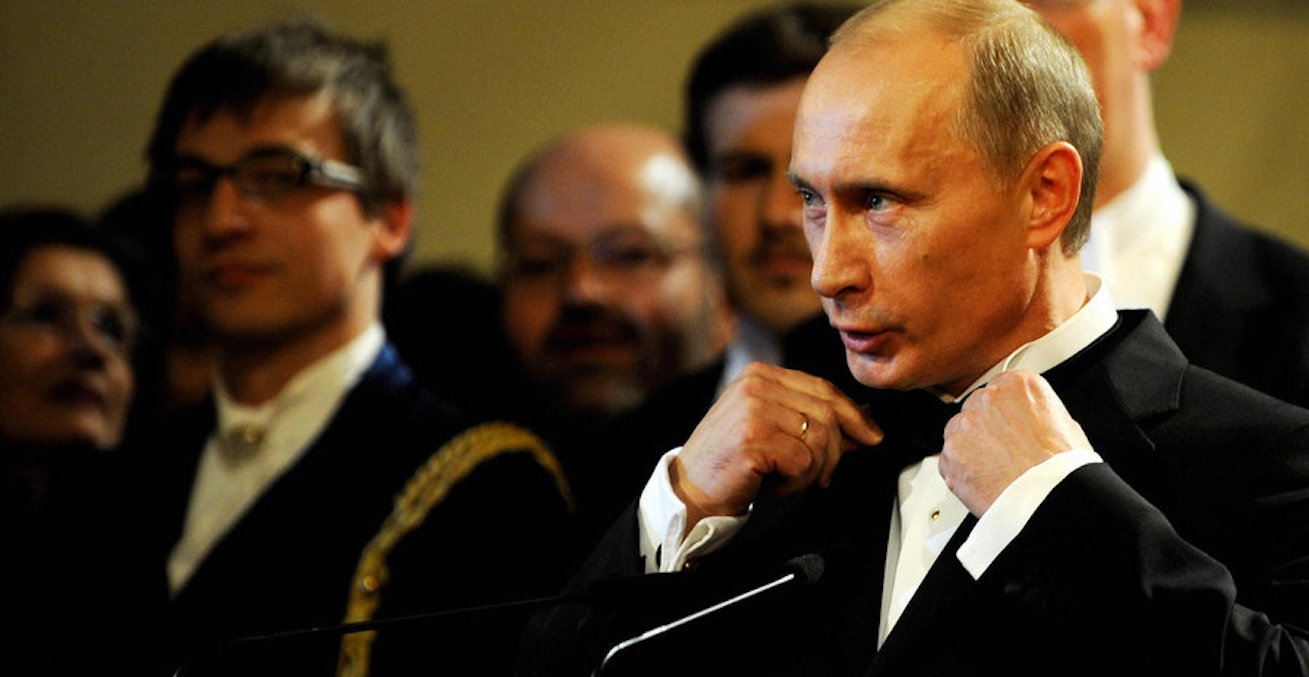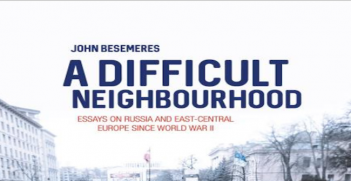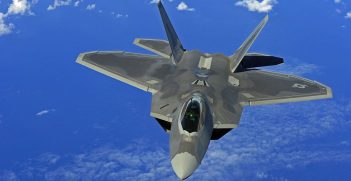The Skripal Affair: Curiouser and Curiouser

Australia’s expulsion of two Russian diplomats is part of the global condemnation of Russia’s alleged role in the 4 March use of a nerve agent in the UK. However, questions remain over the strength of the evidence.
On 4 March, former Russian spy Sergei Skripal and his daughter Yulia, who came from Moscow on 3 March to visit her father, were found slumped unconscious on a bench outside a shopping centre in Salisbury. Both remain in critical condition in hospital.
British Prime Minister Theresa May said the two had been poisoned with Novichok and pointed the finger of criminality at Russia. Moscow dismissed and mocked the accusation as entirely without foundation. The two countries have since carried out tit-for-tat expulsions of 27 diplomats each.
The affair remains cloaked in mystery. British authorities and scientists are trying to figure out how, when, and where the poison was administered. Why was Skripal a target? Why now? Why through such a high-risk spectacular method? And is the string of Skripal’s misfortunes in the recent past part of the same continuing story; his wife’s death from cancer in 2012, his brother’s death in a car accident in 2016, and his son’s death in St. Petersburg last year from liver cancer.
The problem is that on the one hand, the chain of circumstantial evidence does seem to lead back to Moscow regarding the means used. On the other hand, this does not make much logical sense with respect to either motive or opportunity when balanced against the cost and risks.
Skripal was only a peripheral figure in the murky world of international espionage. He was recruited by Britain’s MI6 in 1995, unmasked as a double agent in 2004, tried, convicted and imprisoned in 2006, and freed in a prisoner exchange and allowed to leave for Britain in 2010. He became a British citizen and lived in an inconspicuous but not a protected house with no attempt to conceal his identity, suggesting a lack of worry about his personal safety.
With good reason, for swapped spies are rarely targeted, not the least because it imperils future swaps. Having left Russia’s military intelligence service GRU in 1999, Skripal is not thought to have possessed valuable secrets that needed safeguarding against further disclosure.
Russia has been alleged to have made these nerve agents in the past. Alleged whistleblower Vil Mirzayanov, who lives in exile in the US, ‘exposed’ the program in 1991. He insists only Russia knows how to make Novichok and doubts the ability of any non-state actor to weaponise it. Russia also has past form. In 2006, another former spy, Alexander Litvinenko, was poisoned in London with polonium.
Yet because of insufficient evidence about its very existence, Novichok is not included in the list of precursors prohibited by the Organization for the Prohibition of Chemical Weapons (OPCW). This despite its inspectors having full access to all known Russian chemical weapons facilities for over a decade, including those identified by Mirzayanov. Last year OPCW inspectors completed the destruction of nearly 40,000 metric tonnes of Russian chemical weapons.
Would Vladimir Putin really risk badly damaging relations, already frayed, with the West over a minor figure just to up the margin of his anticipated victory in the presidential election on 18 March (which he duly won with over 70 per cent of votes)? Russia’s “sarcasm, contempt and defiance”-tinged response to the charge of being behind the attack has inflamed relations even more.
There are legitimate questions to be asked of London also. Russia’s call for proof of its complicity and the offer to join the investigation was summarily dismissed. It is not normal practice to include the chief suspect in the team tasked with investigating a murder. And independent OPCW scientific experts have now been provided with samples by the British authorities.
Craig Murray, the former British Ambassador to Uzbekistan (2002–04), makes two pertinent observations:
- Until now neither Porton Down—which hosts the UK’s only chemical weapons facility—nor the OPCW were convinced that Novichok even existed;
- Not possessing a Russian sample for benchmark comparison, the UK government has no ‘fingerprint’ information that can confidently attribute this substance to Russia.
Conscious of the political pressure because of which the Iraq dossier was ‘sexed up’ to justify the 2003 war, Porton Down agreed to the compromise formulation ‘of a type developed by Russia’. This precise formula was used by May in parliament, by the UK in the UN Security Council, and has been repeated by Foreign Secretary Boris Johnson in public statements and interviews. In other words, they are not claiming that the nerve agent was made in Russia, nor that it can be made only in Russia.
In a rare and very carefully crafted joint statement on 15 March, the leaders of UK, France, Germany, and the US declared:
We… abhor the attack that took place against Sergei and Yulia Skripal in Salisbury, United Kingdom, on March 4, 2018. This use of a military-grade nerve agent, of a type developed by Russia, constitutes the first offensive use of a nerve agent in Europe since the Second World War. The United Kingdom thoroughly briefed its allies that it was highly likely that Russia was responsible for the attack. We share the United Kingdom’s assessment that there is no plausible alternative explanation.
Thus Russia’s “highly likely” guilt is based on deduction, not hard proof (which does not necessarily invalidate the inference).
It’s conceivable that Russia did have a stockpile of Novichok and had negligently lost control of the military-grade nerve agent. May offered this way out for Moscow in her parliamentary statement on 12 March, but Russia refused the opportunity to provide an explanation based on such a scenario. This despite the fact that Leonid Rink, a chemist who worked in a Soviet-era chemical weapons facility and helped to develop Novichok, admitted to investigators after the killing of a Russian banker in 1995 that he sold capsules of the deadly toxin to Chechen criminals based in Moscow. (Members of the Chechen mafia with ties to pro-Moscow leader, Ramzan Kadyrov, have been involved in several high-profile killings of Putin opponents in recent years, including the assassination of leading opposition figure Boris Nemtsov on a bridge near the Kremlin in 2015.) Rink also argues that if Russian agents had been behind the attack the Skripals would not still be alive.
Jeremy Corbyn expressed outrage at the “appalling… barbaric and beyond reckless” attacks on Britain’s streets, but was pilloried for warning against the temptation to “rush way ahead of the evidence”. But even he fell into the trap of misreading what the government has said: ‘the nerve agent used has been identified as of original Russian manufacture’ (my emphasis).
Greg Sheridan, foreign editor of The Australian suggests that “hyper-nationalist” Putin’s motive might be to spread fear among his expatriate Russian critics: you cannot run and hide, we will come after and get you; and also to humiliate Britain by demonstrating its impotence. This doesn’t add up. If Skripal’s offence was considered that grave, he would have been executed after arrest and conviction instead of being exchanged for Russian spies caught in the West and then assassinated on foreign soil. The added risks of the operation going wrong in the UK and the damage to relations and international reputation are significantly higher.
In the poisoned political atmosphere since the WMD big lie of the Iraq war in 2003, it is very difficult to convince a deeply cynical and sceptical global public of claims of criminality by rival major powers without clear evidence to back them up. Call it collateral damage of being found out once: credibility once lost is hard to rebuild.
Professor Ramesh Thakur of the Australian National University is co-convenor of the Asia–Pacific Leadership Network on Nuclear Non-Proliferation and Disarmament and author of Nuclear Weapons and International Security. He was appointed a Fellow of the Australian Institute of International Affairs in 2017.
This article first appeared in Pearls and Irritations on 27 March, 2018. It is republished with permission.





